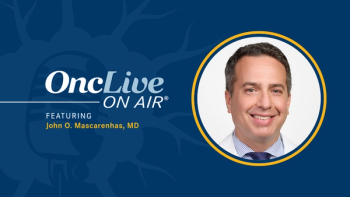
Can Hepcidin Reduce Iron Deficiency in Phlebotomy?
Transcript:
Harry Erba, MD, PhD: Let me turn the last few minutes of this section to some new things coming along. A group of small-molecule inhibitors that are in development in a number of malignancies are the MDM2 inhibitors. John, do you want to tell us about idasanutlin?
John Mascarenhas, MD: P53 is essential for cell fate in multiple ways. MDM2 is a protein that negatively regulates p53 function. MDM2 has been shown to be upregulated in primary PV and MF [myelofibrosis] cells. It’s a viable therapeutic target. The laboratory of Ron Hoffman at the Icahn School of Medicine at Mount Sinai in New York, New York, has published some nice data that show that you use a small-molecule inhibitor to inhibit that interaction between MDM2 and p53 in order to upregulate the pathway that seems to be suppressed and, therefore, send the cell to an apoptotic state.
That probably works even better in combination with interferon or other drugs. We took that into the clinic to our research consortium, and we treated 12 patients in an early phase I study with idasanutlin, which is in active phase III studies in AML [acute myeloid leukemia].
What we found with repeated exposures to idasanutlin was that, a) you could upregulate the p53 pathways marked by upregulation of Myc1, a downstream marker. But b) you can reduce responses that are 75% in a relapsed/refractory population, which included significant drops in JAK2 (V617F) allele burden and even pathologic bone marrow responses.
What was interesting was the study allowed us to combine those patients who didn’t respond with interferon predicated on the preclinical work, and you were able to salvage those responses. It gave us the first proof-of-principle concept to move that approach forward. It has balanced the GI [gastrointestinal] toxicity, which is an issue and probably a class of agents that are MDM2 antagonists.
Now there’s a Hoffmann-La Roche global phase II study evaluating idasanutlin in high-risk PV patients who’ve either been on hydroxyurea and/or ruxolitinib. And there’s a company called Kartos Therapeutics that has a drug, KRT-232, that is a highly potent selective MDM2 inhibitor. It is also evaluating the drug in PV and MF. It’s a concept that’s still unfolding, and how best to deliver such a drug in a chronic disease is going to be 1 of the challenges.
Harry Erba, MD, PhD: Drug development in a disease in which patients do so well is difficult. Just looking at having to define the population of PV patients who are approved for ruxolitinib. That population had to be defined first before we could actually develop the drug. It will be even a greater challenge now with having ruxolitinib and interferon and other choices.
Robyn, there’s a drug that’s been developed for beta thalassemia, hepcidin analog. That’s been looked at here. Do you want to tell us about that?
Robyn Scherber, MD: There are some early efforts of the phase II study in PV, and these would be up front. Patients who are still requiring phlebotomies can use this hepcidin mimetic to potentially help reduce the frequency of phlebotomy, with the idea that where we see typical phlebotomies causing potentially iron deficiency symptoms.
This hepcidin mimetic is unique in that it helps inhibit the absorption of iron but doesn’t have the effects of the iron deficiency syndrome. It could potentially be an oral agent, and they’re working on getting that oral form, that patients could use to help reduce the frequencies of phlebotomies early on in the disease course.
Transcript Edited for Clarity



































